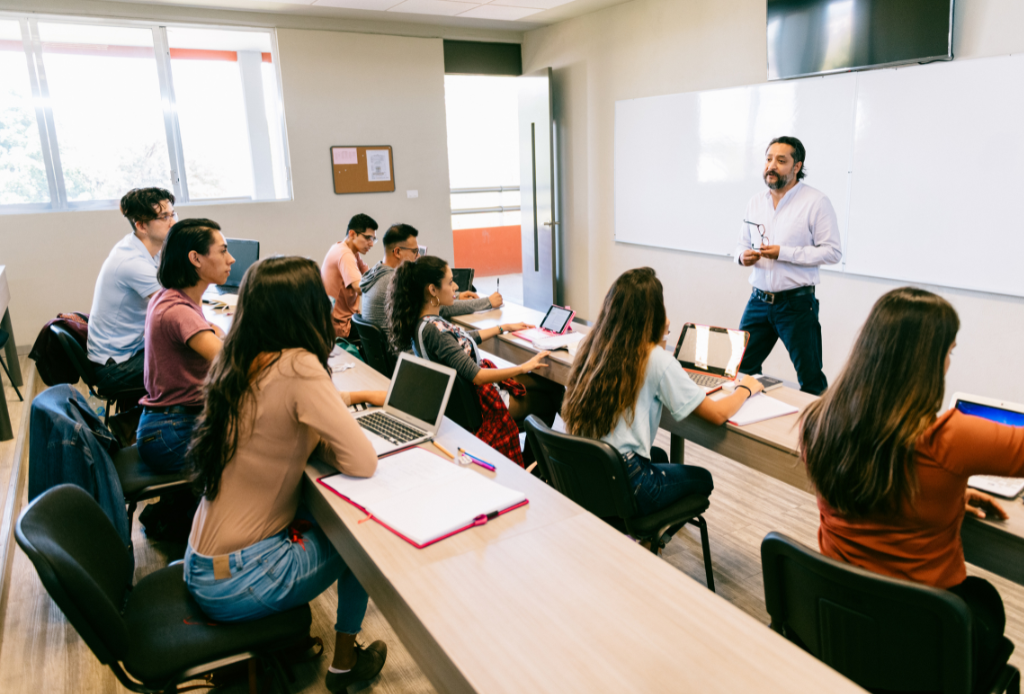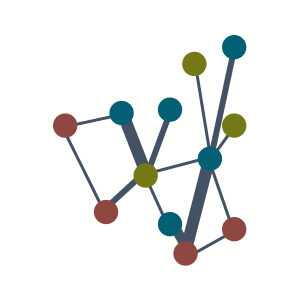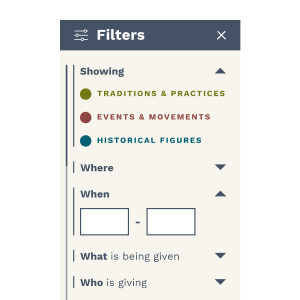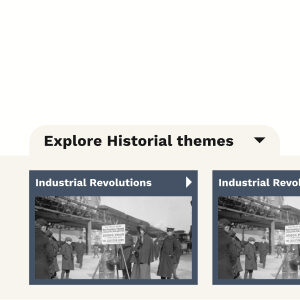Philanthropy and Education

Credit: ferrantraite from Getty Images Signature via Canva.com
| Giver: | Community, Foundation, Government, Individual |
|---|---|
| Receiver: | Formal/Structured unregistered organizations, Individual or unstructured/informal group |
| Gift: | Items, Money, Time |
| Approach: | Philanthropy |
| Issues: | 10. Reduced Inequalities, 16. Peace, Justice and Strong Institutions, 3. Good Health and Well-Being, 4. Quality Education, 8. Decent Work and Economic Growth |
| Included in: | Philanthropy and Education |
Expanding access to education is a form of generosity that can have an enormous positive impact on society. Education enables people to gain knowledge and develop skills that can help them achieve economic independence, develop strength of character and lead healthy and fulfilling lives. Equally significant, education helps people gain a greater understanding of other societies and cultures, promoting a deeper respect for the fundamental interconnectedness of humanity. By promoting educational opportunities for all people, regardless of circumstances, philanthropy can foster a more productive, prosperous and peaceful world.
A thriving educational environment requires strong financial support. While governments cover much of the spending for public schools, both state-run and private educational institutions also rely on critical funding from corporations, foundations and individual donors. Through active and engaged alumni networks, graduates help ensure that their alma maters continue to thrive long after they’ve graduated. Often, alumni who received financial assistance during their school years express their gratitude through donations, thereby extending the same opportunities to new generations of students.
A good deal of educational funding focuses on the physical aspects of learning – founding and building schools, equipping classrooms and paying for books and supplies. Financial backing can endow academic disciplines, research institutes, special education programs, learning centers and student scholarships. Financial support can also help remove barriers to education – for example, by funding the transportation necessary to ensure that children in remote geographical areas can attend school.
The act of educating others represents its own form of giving. By passing on knowledge and expertise, educators nurture personal growth in their students, empowering them to shape the course of their own lives. In addition to imparting valuable information and skills, teachers engender critical thinking, building students’ capacity to engage with opposing viewpoints while promoting a more vigorous and stimulating learning experience.
Educators also demonstrate generosity in the way they respond to the particular needs of individual students. Conscientious teachers help pupils navigate academic challenges while giving them confidence to take on new opportunities. Effective instructors also show empathy and patience toward students who are struggling, providing them with the emotional support they need to focus academically. This attentiveness can ultimately inspire students to demonstrate the same compassion toward others.
The most vibrant and effective educational institutions beget cultures of collaboration, respect and tolerance. By cultivating a greater understanding of the broader needs of society and the world, educators can pass on a generosity of spirit to their students, providing them with the knowledge and training they need to confront the challenges of globalization and technological innovation. Supporting these types of pedagogical initiatives must remain a priority for philanthropic giving in the 21st century.
Contributor: Stephen Meyer
| Source type | Full citation | Link (DOI or URL) |
|---|---|---|
| Publication |
Cooper, Paul. “The Gift of Education: An Anthropological Perspective on the Commoditization of Learning.” Anthropology Today 20, no. 6 (December 2004): 5-9. |
https://doi.org/10.1111/j.0268-540X.2004.00310.x |
| Publication |
Duncan, Greg J., and Richard J. Murnane. “Growing Income Inequality Threatens American Education.” The Phi Delta Kappan 95, no. 6 (March 2014): 8-14. |
https://www.jstor.org/stable/24374505 |
| Book |
Luke, Allan. “Pedagogy as Gift.” In Critical Literacy, Schooling, and Social Justice: The Selected Works of Allan Luke, 272-96. New York: Routledge, 2018. |
9781138294714 |
| Publication |
Rogers, Robin. “Making Public Policy: The New Philanthropists and Higher Education.” American Journal of Economics and Sociology 74, no. 4 (September 2015): 743-74. |
https://www.jstor.org/stable/43817538 |
| Publication |
Ruth, Damien. “Education as Gift: Taking Education out of the Market and the Market out of Education.” New Zealand Sociology 33, no. 2 (2018): 203-28. |
https://search.informit.org/doi/abs/10.3316/informit.952659312059051 |
| Publication |
Gasman, Marybeth. “W.E.B. Du Bois and Charles S. Johnson: Differing Views on the Role of Philanthropy in Higher Education.” History of Education Quarterly 42, no. 4 (Winter 2002): 493-516. |
https://www.jstor.org/stable/3218091 |
| Publication |
Sundar, Pushpa. “The Gift of Knowledge: Philanthropy and Higher Education.” India International Centre Quarterly 42, no. 3/4 (Winter 2015-Spring 2016): 66-77. |
https://www.jstor.org/stable/26316576 |


